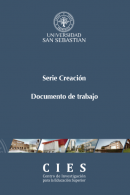
Frequency and Specificity of Red Blood Cell Alloimmunization in Chilean Transfused Patients
| PROCEDENCIA(S): | Centro de Salud USS, Ciencia y Medicina, USS Concepción. |
|---|---|
| CATEGORÍA(S): | Biología Celular, Hematología, Inmunología, Medicina y Ciencias de la Salud. |
| AUTOR(ES): | José Caamaño / Evangelina Musante / Margarita Contreras / Hernán Ulloa / Carolina Reyes / Verónica Inaipil / Nicolás Saavedra / Neftalí Guzmán. |
| TIPO DE MATERIAL: | Artículos, Investigación. |
| ARCHIVO: |
 Reconocimiento CC BY. Esta obra está bajo una Licencia Creative Commons Reconocimiento CC BY 4.0 Internacional.
Reconocimiento CC BY. Esta obra está bajo una Licencia Creative Commons Reconocimiento CC BY 4.0 Internacional.
Alloimmunization is an adverse effect of blood transfusions. In Chile, alloimmunization frequency is not established, and for this reason the aim of this study was to investigate the prevalence and specificity of red blood cell (RBC) alloantibodies in Chilean transfused subjects.
Methods: Records from 4,716 multi-transfused patients were analyzed. In these patients, antibody screening was carried out prior to cross-matching with a commercially available two-cell panel by the microcolum gel test, and samples with a positive screen were analyzed for the specificity of the alloantibody with a 16-cell identification panel.
Results: The incidence of RBC alloimmunization in transfused patients was 1.02% (48/4,716) with a higher prevalence in women (40/48). We detected 52 antibodies, the most frequent specificities identified were anti-E (30.8%), anti-K (26.9%), anti-D (7.7%), and anti-Fya (5.8%). The highest incidence of alloantibodies was observed in cancer and gastroenterology patients.
Conclusion: The data demonstrated a low alloimmunization frequency in Chilean transfused patients, principally associated with antibodies anti-E, antiK, anti-D, and anti-Fya.



